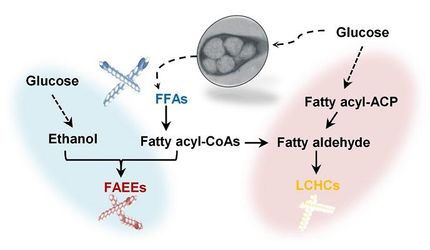Scientist IDs genes that promise to make biofuel production more efficient, economical
Advertisement
A University of Illinois metabolic engineer has taken the first step toward the more efficient and economical production of biofuels by developing a strain of yeast with increased alcohol tolerance. Biofuels are produced through microbial fermentation of biomass crops, which yield the alcohol-based fuels ethanol and iso-butanol if yeast is used as the microbe to convert sugars from biomass into biofuels.
"However, at a certain concentration, the biofuels that are being created become toxic to the yeast used in making them. Our goal was to find a gene or genes that reduce this toxic effect," said Yong-Su Jin, an assistant professor of microbial genomics in the U of I Department of Food Science and Human Nutrition and a faculty member in the U of I's Institute for Genomic Biology.
Jin worked with Saccharomyces cerevisiae , the microbe most often used in making ethanol, to identify four genes (MSN2, DOG1, HAL1, and INO1) that improve tolerance to ethanol and iso-butanol when they are overexpressed.
"We expect these genes will serve as key components of a genetic toolbox for breeding yeast with high ethanol tolerance for efficient ethanol fermentation," he said.
To assess the overexpressed genes' contribution to the components that have limited biofuel production, the scientists tested them in the presence of high concentrations of glucose (10%), ethanol (5%), and iso-butanol (1%) and compared their performance to a control strain of S. cerevisiae.
Overexpression of any of the four genes remarkably increased ethanol tolerance, but the strain in which INO1 was overexpressed elicited the highest ethanol yield and productivity—with increases of more than 70 percent for ethanol volume and more than 340 percent for ethanol tolerance when compared to the control strain.
According to Jin, the functions of the identified genes are very diverse and unrelated, which suggests that tolerance to high concentrations of iso-butanol and ethanol might involve the complex interactions of many genetic elements in yeast.
"For example, some genes increase cellular viability at the expense of fermentation. Others are more balanced between these two functions," he said.
"Identification of these genes should enable us to produce transportation fuels from biomass more economically and efficiently. It's a first step in understanding the cellular reaction that currently limits the production process," he said.
Further study of these genes should increase alcohol tolerance even further, and that will translate into cost savings and greater efficiency during biofuel production, he added.




























































